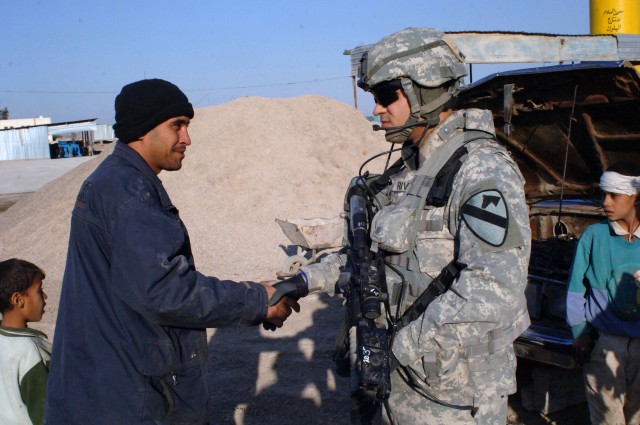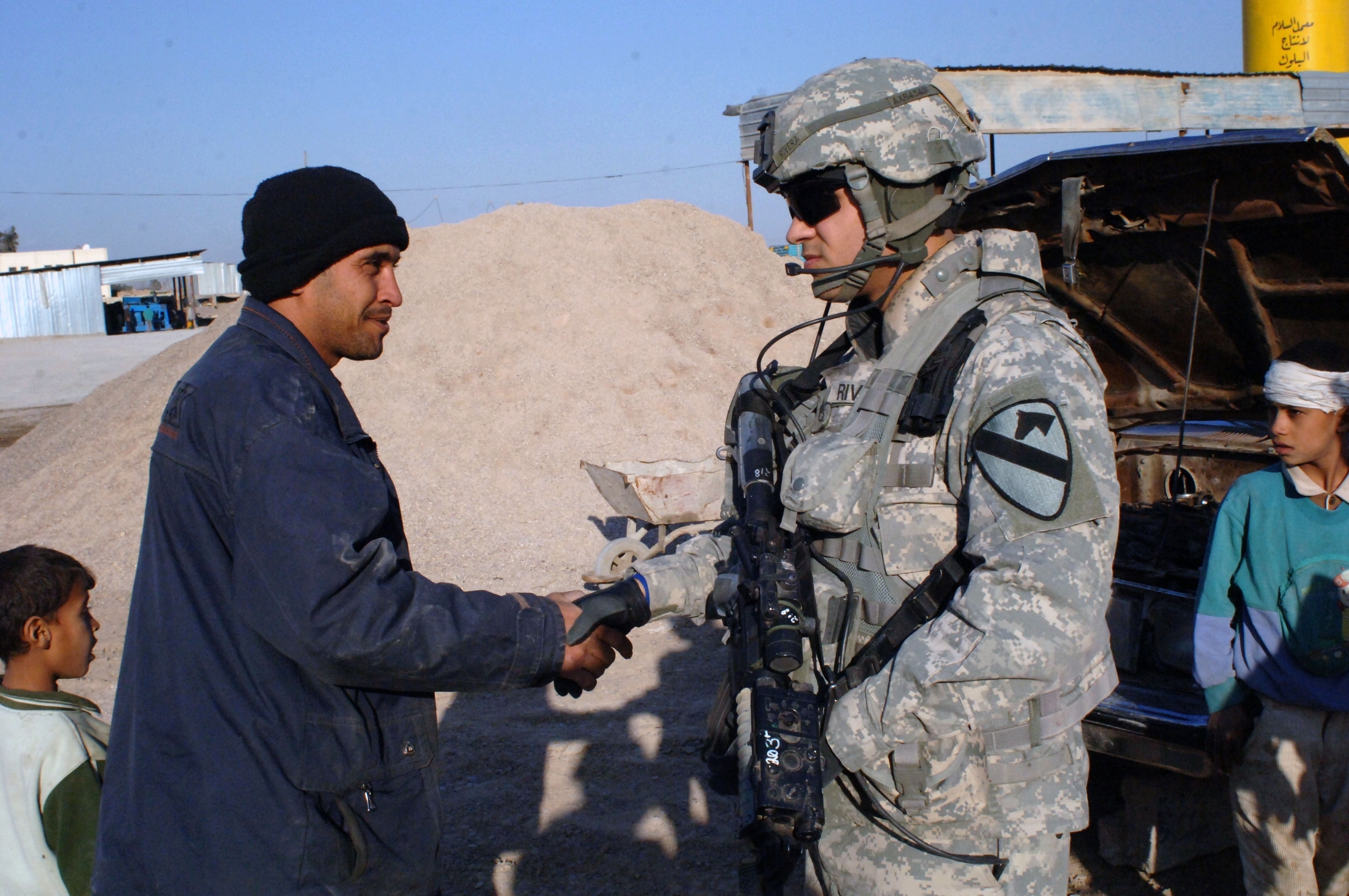
WASHINGTON (Army News Service, Feb. 1, 2007) - The Army faces significant challenges in the years ahead, but it is still the world's preeminent land power and has not been overly strained by the war on terror, Gen. George W. Casey Jr., commander of Multi-National Force-Iraq, said here today.
Casey, who has commanded in Iraq since July 2004, is President Bush's pick to be the next Army chief of staff. Speaking at his confirmation hearing before the Senate Armed Service Committee, Casey expressed confidence in U.S. Soldiers.
"I see in Iraq every day a splendid Army," Casey said. "I know that (current Army Chief of Staff Gen. Peter Schoomaker) has problems with the forces yet to deploy and with some of the strategic elements that will deploy later, but from what I see in Iraq, the Army is far from broken."
Casey said he believes in the Army vision and transformation, and that his position in Iraq has given him an opportunity to see the Army at work in the war on terror. Today's Soldiers are the best he has seen in his entire career and make a difference in Iraq every day, he said. He pledged that U.S. Soldiers and their families, who make tremendous sacrifices, will be his top priority if confirmed.
The Army's transformation to a lighter, modular-based force has been successful in Iraq, Casey said. The smaller units are able to handle the complexities of the war in Iraq, he said, and transformation will continue to be important in the Army's future.
Casey also noted the importance of the Army National Guard and Reserve to the service's mission. The United States is approaching a point where half of Guard and Reserve troops are combat veterans, and these troops will be essential to future operations, he said.
The proposed increase in Army end-strength of 65,000 troops over five years is adequate, Casey said, and the new strategy to secure Iraq can work. He noted that Iraqi security forces have assumed control of security in several provinces. The main challenge remains in Baghdad, where sectarian violence has surged, he said.
"For the Iraqis to successfully assume and sustain security responsibility, their security forces must emerge as the dominant security forces in the country," Casey said. "To do this, political and militia influence over the security forces must be eliminated and levels of sectarian violence, particularly in the capital, must be brought down substantially - brought down to the point where the people in Baghdad can be safe in their neighborhoods. This is what we are working toward in Baghdad. It will take time, and the Iraqis do need our help."
The five additional U.S. brigades Bush has pledged to Iraq will give commanders on the ground extra flexibility they need to accomplish the mission, Casey said.
The United States is relying more on Iraqi forces and requiring them to take responsibility for security in Baghdad, Casey said. However, the Iraqi population does not have high levels of confidence in the security forces, especially the police, he said. To deal with this problem, the coalition will team with Iraqi army and police units in daily operations.
"That's where the coalition comes in, because when they see us operating with the Iraqi police particularly, the population has a greater level of confidence that they'll be treated properly," he said.
The firefight that took place this week in Najaf was a perfect example of how Iraqi and coalition forces should work together, Casey said. The Iraqi police responded to a situation and found they couldn't handle it alone, so they called the Iraqi army; the Iraqi army arrived and needed support, so they called for coalition backup. "The Iraqis dealt with it with our support," he said.
Three provinces in northern Iraq will soon be under Iraqi control completely, and more provinces are to follow, Casey noted. Across Iraq, 14 of the 18 provinces have 10 or less incidents of violence per day, he added. However, he acknowledged that the situation in Baghdad is grave and said the city's importance as the center of government cannot be overlooked.
Casey outlined several things U.S. leadership can look for when measuring the success of the Iraq security plan. The first indicator will be a reduction in lawlessness and the level of sectarian killings, he said. Second is continuing work on the security situation in Baghdad until the people can feel safe in their neighborhoods. Another measure will be the emergence of the Iraqi security forces as the dominant force in the country. Also important are an improvement in basic services in Baghdad and the engagement of political and religious leaders in the peace process.
The situation in Iraq is not nearly where he thought it would be, Casey said, but he stressed that his experience in the country has strengthened him as a leader. He has dealt with the highest levels of U.S. government, mentored three Iraqi prime ministers, and dealt with different ambassadors, he said. "I have learned an awful lot about strategic leadership, and I believe that will help me greatly as the chief of staff of the Army," he said.
Casey said he recognizes the tremendous responsibilities associated with the chief of staff position. He is willing to take it on because he views it as his duty, and he is committed to the future of the Army, he said.
"I'm a Soldier. My roots are in the Army, and I know the pride of wearing this uniform," Casey said. "Service as Army chief of staff is not a reward. It's a duty. It's about service, and it's about personal commitment to the men and women of the United States Army."
(Sgt. Sara Wood writes for the American Forces Press Service.)

Social Sharing